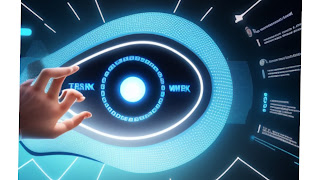When we imagine improving our lives and changing our workplace, technovation comes at hand with computerized approaches to fill the gap between cost, time, quantity, and quality management. This improves the workplace with high efficiency and productivity.
This is why the development of AI comes with the power to transform our workplace and the job industry at large. New jobs are emerging, while others are becoming AI automated. AI language modelling and video image generation for example have started affecting graphic design occupations.
These skills are at the peak of the twenty-first-century modern job market.
- AI experts. These are specialists in artificial intelligence who know different kinds of technology and tools available in the sector of AI. These individuals work with organizations to discover new and innovative methods of implementing this kind of technology in their day-to-day tasks.
- Mathematics experts. A mathematician skilled in calculus, linear algebra, and probability can easily excel in an AI career.
- Data scientists experts. These experts are skilled at defining data using scientific methods, processes, and algorithms. They combine math and statistics and machine learning to analyze data.
- Human-Machine Language Intelligence or Human–Machine Interaction (HMI) refers to the communication and interaction between a human and a machine via a user interface. A natural user interface such as gestures can allow humans to control machines through natural and intuitive behavior.
- Good mind with new innovative ideas. Artificial Intelligence is not only about maths. It’s more about problem-solving and analytical thinking skills. People who are good and creative at learning new skills have a chance too.
Workplaces are in transformation. Products are generated by AI technology, and now human language work with machines. And to add to the list, automated cars work with AI technology, and the production of such cars is a reality. Jobs in the fields of Blockchain engineers, Banking and Accountants, Legal assistants, climate change policy analysts, and reporters & journalists are likely to be highly impacted by AI automation.
Also, IA technology transforms the workplace in medical specialties such as oncology. Oncology includes all medical specialties, studies, diagnosis, and treatment of cancer, cardiology, radiology, ophthalmology, and the detection of neurological disorders like Parkinson's and Alzheimer's.
Putting AI into effective performance at work requires ongoing learning and skills development. This includes logical reasoning, knowledge representation, and natural language perception and processing. Big data enables AI deep learning which is an advanced machine learning technique.
Workers can still benefit from AI in several ways.
Using AI tools, workers can do and complete their tasks easily. AI tools are software applications that use artificial intelligence algorithms to perform specific tasks and solve problems. AI tools can be used in a variety of initiatives, from healthcare and finance to commerce and education, to automate tasks, analyze data, and improve decision-making.
- Workplace AI attracts human-AI interactions having an advantage to improve worker abilities. Doubting and skepticism from workers increase from sensing AI as a job threat.
- A workplace AI risks employees losing specific skills but maintains essential talents.
- AI and worker coexistence require workers' technical, human, and conceptual skills. Technical skills benefit coexistence but cannot outweigh human and conceptual skills.
Artificial intelligence influences space for products and interaction. The space for online interaction is nowadays changing. When using some of the websites ask to verify whether a user is a robot or not. In the banking sector, the detection of anomalies in transactions using AI-based devices can be a reality.
Human-Machine interaction will become a reality for millions of people soon. This leads to a great demand for AI experts as technology transforms and creates new jobs while other jobs disappear or become outdated.
Lastly, there is also a huge concern for regulating AI to increase transparency and avoid misuse of the technology. Investing in cross-cutting skills to support workers to continuously learn and evolve their skills side by side with Artificial intelligence technology.
Also read:





Thank you for reading!